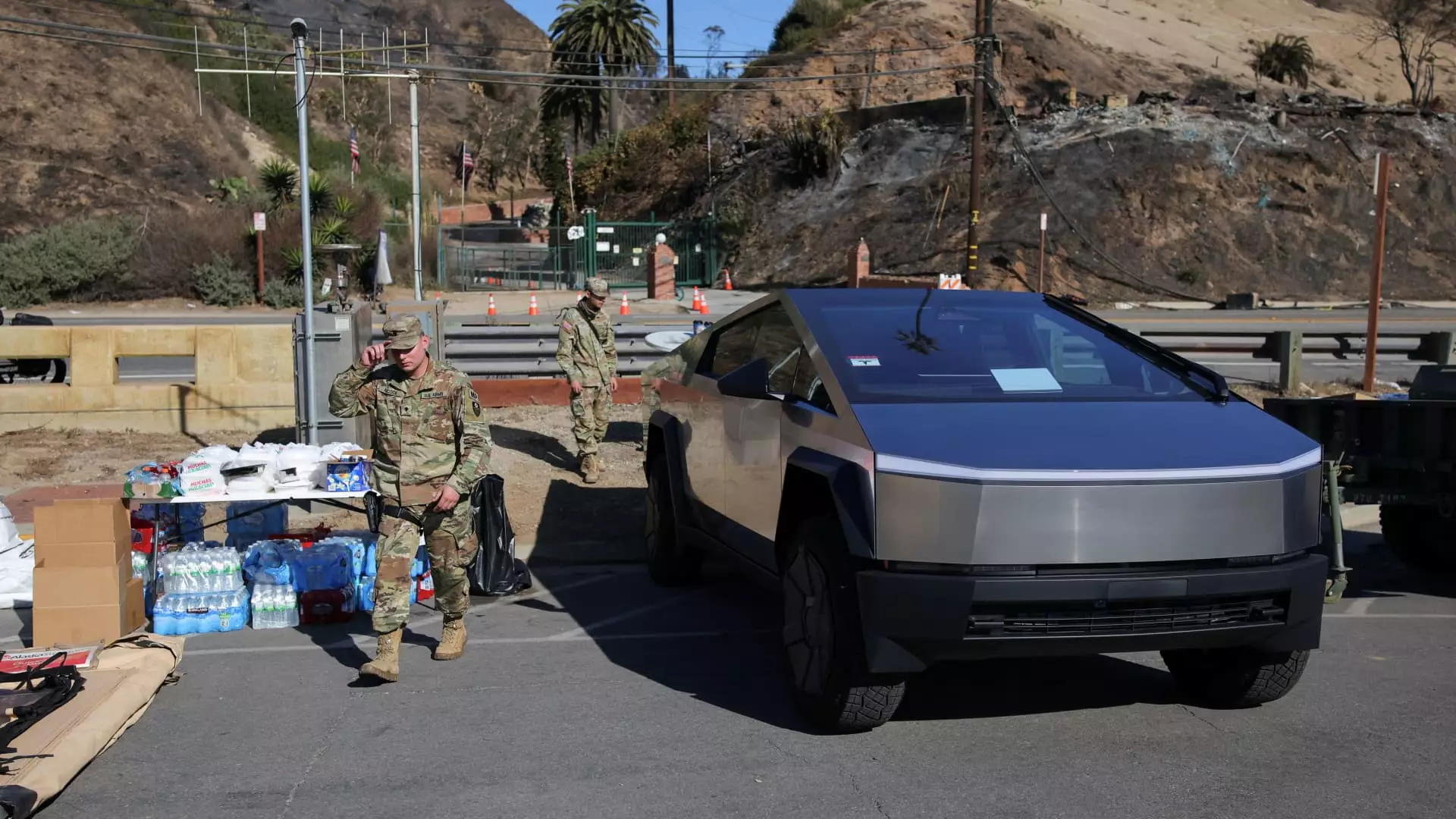In a strategic move to enhance sales, Tesla has recently instated discounts on its Cybertruck inventory, a decision that highlights the complexities of managing production and customer demand in the electric vehicle (EV) sector. The discounts, which can reach up to $1,600 for new models and more for demo versions, seem to serve as a recalibration for Tesla as it navigates the turbulence of a fiercely competitive automotive market.
While the unprecedented design of the Cybertruck has garnered significant attention since its 2019 reveal, production challenges at Tesla’s Austin facility have curtailed growth. Reports indicate a slowdown in the manufacturing of these angular vehicles, causing delays that frustrate consumers and potentially erode customer trust. Despite making strides in EV deliveries, Tesla has faced mounting issues, including several recalls throughout the year—most notably the recent replacement of defective drive inverters. Such setbacks not only affect immediate sales prospects but also reflect the intricacies of EV production that Tesla must adeptly manage to maintain its market position.
As consumer preferences evolve and competition increases, Tesla’s pivotal role in the automotive landscape is under scrutiny. The Cybertruck, despite its unique appeal, has failed to sustain the optimistic projections Wall Street once held. By outselling competitors like the Ford Lightning F-150, it initially appeared to be a surefire success. However, its steep price—approximately $80,000 compared to the anticipated $40,000—has presented significant barriers to broader market adoption. In a landscape marked by rising EV sales, with an estimated 1.3 million units sold in the U.S. in 2024, Tesla’s performance has surprisingly diminished, with a decrease in sales of approximately 37,000 vehicles year-over-year.
The influx of new models from various automakers has directly impacted Tesla’s market share. While the established Tesla Model Y and Model 3 continue to lead in sales, the decline in their figures suggests an urgent need for Tesla to innovate and adapt. The EV market is no longer a solitary arena dominated by Tesla; rather, it’s becoming increasingly overcrowded, requiring strategic maneuvers to reclaim consumer attention.
In a recent display of corporate responsibility, CEO Elon Musk addressed California customers regarding delays attributable to resource allocation for wildfire relief efforts. By repurposing the Cybertrucks as mobile base stations to provide internet service via Starlink, Tesla not only showcased its commitment to community but also subtly reinforced its technological capabilities. However, these goodwill gestures must align with the efficiency of delivery and production timelines to mitigate dissatisfaction among customers eagerly awaiting their vehicles.
As Tesla continues to navigate the complexities of the electric vehicle market, its Cybertruck initiative stands at a crossroads. The recent discounts illustrate an adaptive response to potential market stagnation, while ongoing production issues and competition emphasize the necessity for strategic transformations. Looking forward, Tesla’s ability to resolve these challenges will be pivotal not only for its sustained growth but also for maintaining its reputation as a leader in the rapidly evolving automotive industry.


Leave a Reply
You must be logged in to post a comment.